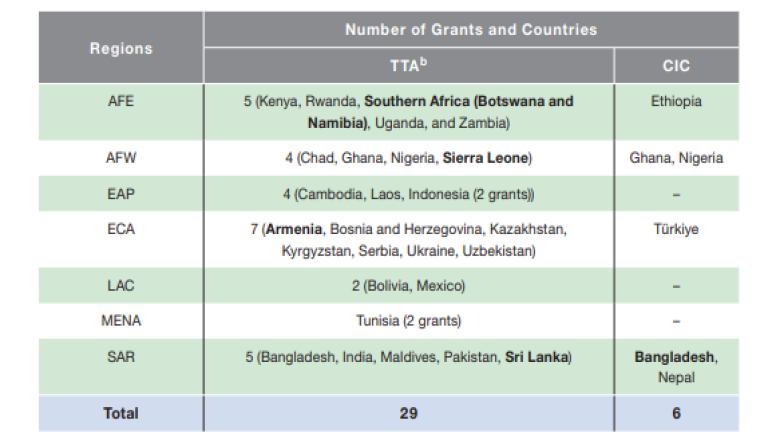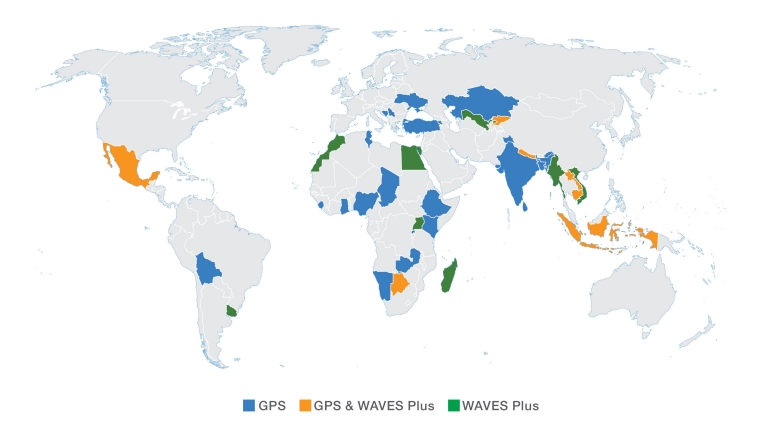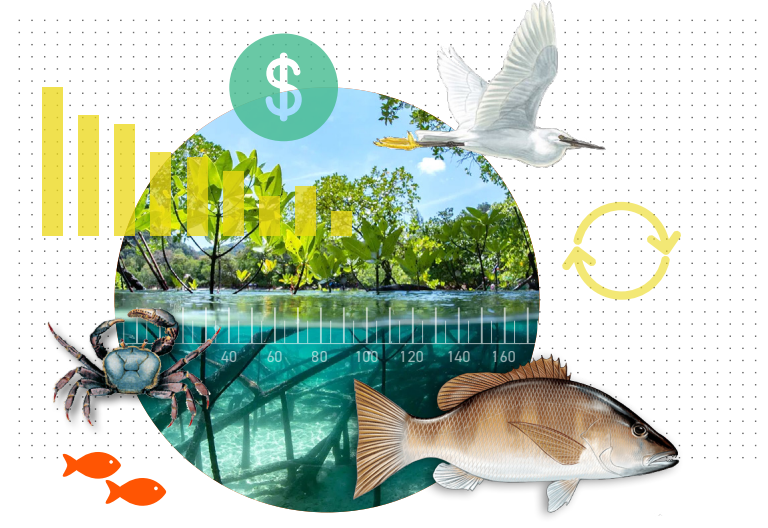The depletion of a country's natural capital hinders poverty reduction and sustainable development objectives. Environmental assets, such as timber or fisheries, and ecosystem services, such as water filtration and carbon sequestration, are critical for human well-being and provide significant economic and social benefits.
A 2021 World Bank report, The Economic Case for Nature, estimates that the global economy could lose $US 2.7 trillion by 2030 (compared to business as usual) if certain ecosystem services collapse (pollination, carbon sequestration and storage, fisheries and timber provision). In low-income countries, GDP could decline 10% annually on average, with higher losses in countries particularly dependent on ecosystem services.
Understanding the value of a country's environmental assets is the key to sustainable development and economic growth. The Global Program on Sustainability helps countries integrate these sustainability considerations into policies and decision making by providing high quality data on stocks and flows of natural resources and ecosystem services, and analyzing the corresponding risks and opportunities for the development process.
Launched in 2019, GPS is structured around three core pillars:
Pillar 1: Global Data and Analytics: under this pillar, GPS supports the development or improvements of global data and analytical products and approaches for the measurement and valuation of natural capital and ecosystem services. Recent key reports under this Pillar include the Economic Case for Nature and the Changing Wealth of Nations 2021 .
Pillar 2: Country and Regional Level Support: working in over 20 countries, GPS assists with the production of data and analysis on natural capital and ecosystem services, and with the use of that information to inform country-level policy and investment decisions.
Pillar 3: Sustainable Finance: GPS conducts research and develops data and tools that help to better integrate environmental criteria, including the value of nature, into financial markets. GPS also supports governments, central banks, and regulators in developing policy and regulatory approaches that contribute to aligning financial flows with sustainability goals. Additionally, GPS engages with a range of financial institutions and market-led initiatives to better integrate nature into investment decision making.
GPS builds on nearly a decade of experience from the Wealth Accounting and the Valuation of Ecosystem Services (WAVES), a global partnership that, during 2012-2020, has piloted in a dozen countries the development of natural capital accounts and their use for policy purposes.



